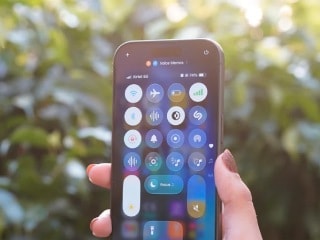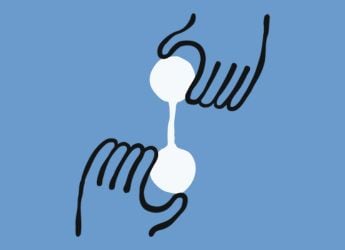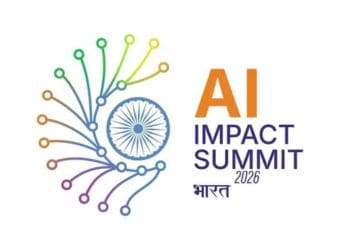- Home
- Apps
- Apps Features
- PUBG Ban in India: Young Indians’ Aspirations Hit the Pause Button
PUBG Ban in India: Young Indians’ Aspirations Hit the Pause Button
PUBG Mobile accumulated 18.5 crore downloads in India until its ban came into force last week, according to Sensor Tower.

PUBG Mobile is credited as one of the key sources to bring esports and gaming to the mainstream in India
Yogesh Yadav, a young man from Etawah, Uttar Pradesh, is known in the Indian gaming world as “GXR Celtz Roxx”. He started his journey with PUBG Mobile for fun. But when he left his hometown for higher studies, he instead found a bright career in the field of esports. The 19-year-old entered the competitive market of gamers and streamers in January this year by participating in the semi-annual regional esports tournament PUBG Mobile Club Open — Spring Split 2020, and getting a monthly salary that was many times higher than most young professionals earn, from UAE-based esports organisation Galaxy Racer eSports for playing the game 10-12 hours a day.
This came to a sudden halt last week, when the Indian government imposed a ban on the game — alongside PUBG Mobile Lite and 116 other apps and games that come from companies based in China. Yadav, and many of his fellow esports athletes, were left in the dark.
“I was getting paid for the hard work I was putting in,” said Yadav. “However, the PUBG ban has drastically affected competitive players like me.”
PUBG Mobile is one of the most popular games in India, with over five crore people having downloaded the game. That's almost three out of every 10 Indians. Unlike video games on your computer or game console, PUBG Mobile enjoys a broad following in India because it will run smoothly on almost any phone.
If you have a phone under Rs. 10,000, you won't be able to run Fortnite — another game in the same genre that is hugely popular in the US. But PUBG will run. Thanks to crores of Indians who don't have access to high-end laptops, game consoles, or iPhones, PUBG Mobile became the national pastime. Until it wasn't.
![]()
Yogesh Yadav alias "Celtz Roxx" started his journey with PUBG Mobile just for fun
The impact of this ban will mostly be felt by young Indians like Yadav, who belong to small towns and have big dreams. Young pro PUBG players earning between Rs. 80,000 to Rs. 1,30,000 as salary was not uncommon. This was possible because Tencent, the Chinese company that developed and distributed the game for the Korean PUBG Corporation, spent a lot of money in India, sponsoring tournaments, and independent streamers, and with the ban, an entire economy dependent on PUBG is being dismantled. While gamers will find other titles to keep themselves entertained, will the replacement be as accessible to people from all over India, or will gaming again retreat into a more privileged space?
‘I want to see PUBG, I want to play PUBG'
Delhi-based Sanzeeda Tarannum, whose father is a private contractor in the textile industry and mother is a housewife, is an active PUBG Mobile streamer with a YouTube channel called BRosis Gamer. She told Gadgets 360 that the ban is affecting lives of all major streamers who used to stream the game on a regular basis.
“There [is a large] mass of audience for PUBG only,” said the 24-year-old streamer. “If I play a different game on stream, they [the audience] keep saying, ‘why you're playing this game, just shut it down, play another game, I want to see PUBG, I want to play PUBG.'”
To continue engagements on YouTube, she's streaming titles including Valorant and GTA V — but it's not been an easy road. Tarannum said that after the ban, she started seeing a fall in both views and revenues.
![]()
Sanzeeda Tarannum of YouTube channel BRosis Gamer says there is a huge audience of PUBG Mobile
And it is not just rising names like Yadav and Tarannum either. Top streamers in the country, who came from all parts of India and all walks of life, are also facing uncertainty due to the indefinite ban.
Paridhi Khullar alias Rav3n, a game streamer in India with over 2.24 lakh subscribers on YouTube, who lives in Indore and started her career as a digital marketer before venturing into gaming, told Gadgets 360 that due to the ban, the connection and the bond between the streamers and their audience was affected.
“We used to think that by 2023, India would become such a popular place for esports gamers that parents would finally open up about letting their kids take it up as a profession,” said 23-year-old Khullar. “But because of the whole ban, I doubt that is something that will happen.”
She added that the ban would bring a major impact on her views as well as revenues.
“Even my parents would have second thoughts about whether they should let me continue with gaming because at the end of the day, you will have to earn something,” she noted.
Hobby gamers are also distressed by the ban as PUBG Mobile was one of their major sources of distraction from the coronavirus outbreak.
“When everything was under lockdown, PUBG's interactive features gave me a semblance of real-world social interaction. It was a stress-buster for me,” said 26-year-old Mustafa Scentwala, who played the game with nine friends for hours on a daily basis, as quoted by Reuters.
A foundational structure to Indian gaming
PUBG Mobile has been credited as one of the key sources that have given the pace to gaming and esports in India. According to the data shared by Sensor Tower, the game, which is just a mobile version of the original PUBG, accumulated 18.5 crore downloads in the country, while its lighter version, called PUBG Mobile Lite, that is also banned generated 9.24 crore downloads in the Indian market. This is about half of all PUBG Mobile game downloads in the country.
“PUBG Mobile has a very large userbase in India — about 24 percent of game's App Store and Google Play downloads come from the country,” said Craig Chapple, Mobile Insights Strategist, EMEA, Sensor Tower.
Initially launched in Canada, PUBG Mobile reached the Indian market — alongside the US and other countries — in March 2018. The game saw huge popularity in India, thanks to the large base of smartphone users. But apart from gamers, it attracted various esports organisations to the country and brought businesses for several Indian startups looking to grow in the world of gaming.
Ishaan Arya, Co-founder and Head of esports tournament company The Esports Club, told Gadgets 360 that a large portion of the investments in and around esports in India had been concentrated around PUBG Mobile because that had been one of the driving forces for the entire industry.
While the ban on PUBG Mobile will hurt these organisations and the young streamers and players who made up the ecosystem, it's worth pointing out that it won't affect the coffers of the company itself.
Chapple, of Sensor Tower, told Gadgets 360 that the game generated $41.3 million (roughly Rs. 304.95 crores) in revenue from India so far. The game, however, created a lifetime revenue of over $3.5 billion (roughly Rs. 25,750 crores) globally, putting India at around the one percent of the company's earnings.
Winter is here
The ban on PUBG Mobile in India is likely to affect the investments made by various organisations to boost the Indian gaming and esports environments.
“We think that the ban on Chinese apps would do more harm than good as it will have a significant impact on both players and the industry in India,” said Daniel Ahmad, Senior Analyst at Niko Partners. “The move will deter not just Chinese investment into India, but global investors may see India as too much of a risk to invest in.”
Abhishek Aggarwal, Managing Director of gaming and esports network company Trinity Gaming, told Gadgets 360 that the ban would adversely affect both esports sectors and content creators, with a 10-20 percent fall in viewership in the content creation side in the next few months.
Indian companies including Entity Gaming, a popular name in the world of PUBG Mobile tournaments that handles TSM Entity PUBG mobile team by partnering with US-based esports organisation Team SoloMid (TSM), do see the disruption but only in the short run.
“We were quite lucky to have organisations and brands partner with us,” said Neerav Rukhana, CEO of Entity Gaming. “However, it's not PUBG Mobile that they've invested. They've invested in Entity Gaming, which is a bigger picture. If I look at the bigger picture, it's more about gaming in India, eSports in India that they are looking to partner with. This will disrupt the normal flow of partnerships, but it all depends on how we look at it in the long run.”
That the gaming industry in India is built around PUBG can not be denied. Although Entity Gaming might be able to continue through international tournaments in various games, the larger industry will definitely be affected — money coming into gaming was driven by the perceived audience, and with PUBG Mobile out of the picture, gaming shrinks back into a more privileged space.
A TSM spokesperson told Gadgets 360 that for its team in India, the company was exploring multiple options and no decision had been made yet.
“We are sorry to hear about the ban, and hope the situation can be resolved so players and fans alike can continue to connect through their passion for PUBG Mobile and PUBG Mobile esports,” the spokesperson said.
However, as a lot of discussions are going around, professional gamers like Yadav and Tarannum have no clarity whether they'll stay relevant in the market. The anti-China sentiment, which is considered as the key reason behind the ban, is also likely to play a vital role in shaping the future of gamers in the country.
Arya of The Esports Club told Gadgets 360 that the esports athletes and streamers weren't keen to put themselves in a position where they were seen as putting their own interest above the national interest because that is the reason behind the ban.
Nevertheless, Galaxy Racer eSports CEO Paul Roy assured Gadgets 360 that it would continue to support its existing players in the country.
“We are committed to our players and we will continue to fully support them. We are also committed to the Indian esports scene and to grow our presence in India,” he said.
Ban as an opportunity?
While a large part of the gaming and esports environments doesn't overlook the negativity that would come due to the ban, the removal of the game has also been seen by some as an opportunity for India to grow beyond PUBG Mobile.
“A vacuum has been created, and for any vacuum we have seen in the industry, there is a positive and a negative end to it,” said Aggarwal of Trinity Gaming, who is determined to see the positive side of things.
Some people believe that through the ban, game publishers and developers would get the opportunity to inject their presence in the Indian mobile gaming ecosystem.
“It's [the ban] obviously not great news for Chinese publishers who want to operate in the country, but for other publishers, there is an opportunity to bring tens of millions of players to their games,” said Craig of Sensor Tower.
The removal of PUBG Mobile from Apple App Store and Google Play has already pushed the esports ecosystem in the country to look at Call of Duty: Mobile and Free Fire as the two close alternatives.
However, what will be harder to replace is the community that had been built around PUBG Mobile. And while these games will see downloads, retaining users is going to be a challenge. Most of all though, it's not clear if the companies behind them will be willing to spend to build an ecosystem in the same way.
“We believe that the game [PUBG Mobile] has been a category builder for esports and gaming per see in India,” said Akshat Rathee, Founder and Managing Director of esports tournament organiser NODWIN Gaming. “It is difficult to replace and replicate on the basis of the investments that have been done. We believe that players and the community will give the game at least three months before they abandon it.”
Shortly after the PUBG ban came into place last week, Indian game industry veteran Vishal Gondal and actor Akshay Kumar started promoting FAU-G as an Indian answer to PUBG Mobile. The game, which is developed by game publisher nCore Games, isn't likely to come anytime soon, though. Gondal in media interviews said that it would debut by the end of October.
However, Indian professional gamers and streamers aren't seeing the country bringing any popular alternatives to PUBG Mobile.
“That is because esports and gaming is something that came to India only recently,” said Khullar. “If we are going to compare it with some of the biggest international names, we do lack that.”
![]()
Paridhi Khullar alias Rav3n doesn't see India bringing close alternatives to PUBG Mobile anytime soon
The Esports Club's Arya also stated that the announcement of FAU-G was more of a marketing move that was spiralled into something larger than its makers expected because of the onset.
“I don't think they themselves are looking to compete and fill the void that is PUBG with their game and the kind of experience they're looking to offer with it,” he said.
Is all this just not for a long time?
The Ministry of Telecom and Information Technology in its press release announcing the ban on PUBG Mobile and other 117 apps and games didn't explicitly mention whether it would be for a long time. However, the prime issue appears to be due to the linkage with China. PUBG Corporation seems to have understood the problem and decided to no longer authorise the PUBG Mobile franchise to Shenzhen-based Tencent Games in the country.
Having said that, the government is yet to provide clarity on whether the latest move by PUBG Corporation would eventually impact its restriction in the country.
Shubham Raheja contributed to this story.
Should the government explain why Chinese apps were banned? We discussed this on Orbital, our weekly technology podcast, which you can subscribe to via Apple Podcasts, Google Podcasts, or RSS, download the episode, or just hit the play button below.
Get your daily dose of tech news, reviews, and insights, in under 80 characters on Gadgets 360 Turbo. Connect with fellow tech lovers on our Forum. Follow us on X, Facebook, WhatsApp, Threads and Google News for instant updates. Catch all the action on our YouTube channel.
Related Stories
- Samsung Galaxy Unpacked 2026
- iPhone 17 Pro Max
- ChatGPT
- iOS 26
- Laptop Under 50000
- Smartwatch Under 10000
- Apple Vision Pro
- Oneplus 12
- OnePlus Nord CE 3 Lite 5G
- iPhone 13
- Xiaomi 14 Pro
- Oppo Find N3
- Tecno Spark Go (2023)
- Realme V30
- Best Phones Under 25000
- Samsung Galaxy S24 Series
- Cryptocurrency
- iQoo 12
- Samsung Galaxy S24 Ultra
- Giottus
- Samsung Galaxy Z Flip 5
- Apple 'Scary Fast'
- Housefull 5
- GoPro Hero 12 Black Review
- Invincible Season 2
- JioGlass
- HD Ready TV
- Latest Mobile Phones
- Compare Phones
- Lava Bold N2
- Vivo V60 Lite 4G
- Tecno Pova Curve 2 5G
- Lava Yuva Star 3
- Honor X6d
- OPPO K14x 5G
- Samsung Galaxy F70e 5G
- iQOO 15 Ultra
- Asus Vivobook 16 (M1605NAQ)
- Asus Vivobook 15 (2026)
- Brave Ark 2-in-1
- Black Shark Gaming Tablet
- boAt Chrome Iris
- HMD Watch P1
- Haier H5E Series
- Acerpure Nitro Z Series 100-inch QLED TV
- Asus ROG Ally
- Nintendo Switch Lite
- Haier 1.6 Ton 5 Star Inverter Split AC (HSU19G-MZAID5BN-INV)
- Haier 1.6 Ton 5 Star Inverter Split AC (HSU19G-MZAIM5BN-INV)







![[Partner Content] OPPO Reno15 Series: AI Portrait Camera, Popout and First Compact Reno](https://www.gadgets360.com/static/mobile/images/spacer.png)









